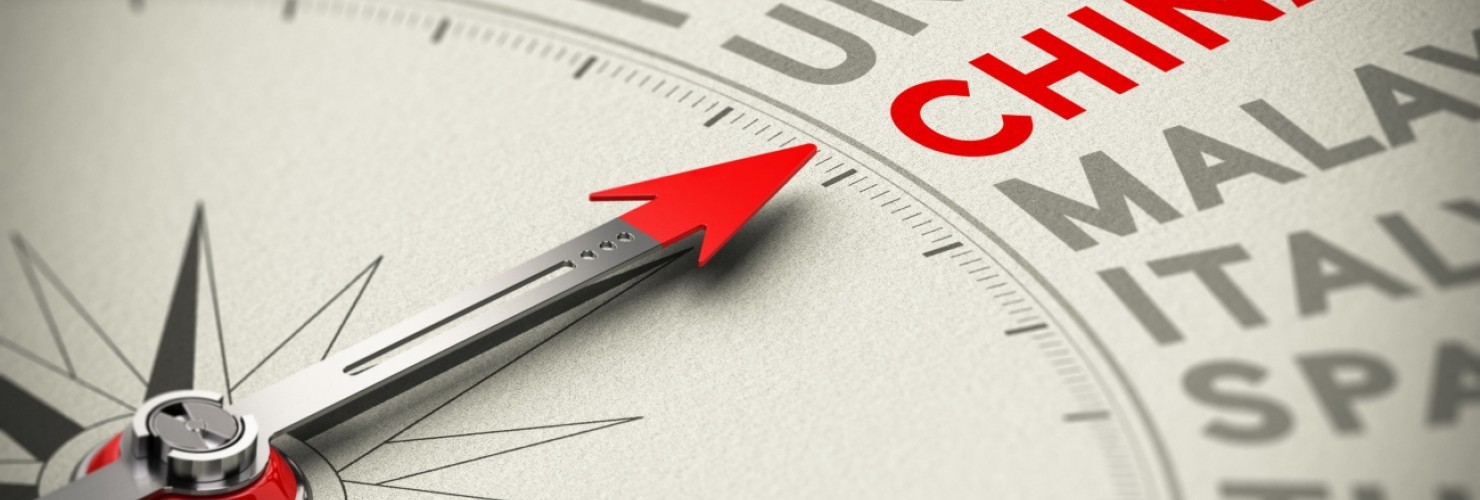

"Westlessness" - Western restlessness at China's ascent
"Westlessness" is the slogan of this weekend's Munich Security Conference (MSC) and a tribute in no small part to China: Beijing's rise and its growing influence on economic, political and security issues is having a clear impact on the Western-led liberal world order, argues MERICS expert Helena Legarda. (via EUobserver)
"Westlessness" is the slogan of this weekend's Munich Security Conference (MSC) and a tribute in no small part to China: Beijing's rise and its growing influence on economic, political and security issues is having a clear impact on the Western-led liberal world order.
For leaders in Brussels or Washington, Berlin or Paris, far-away China is more present than ever before in living memory - its strength and relevance can't be ignored or downplayed.
In London, in December, those same leaders issued a declaration at the end of the Nato summit recognising the challenges posed by the rise of China - a first for the western defence alliance.
Although the language of the statement was careful - it noted that China presents "both opportunities and challenges" - it was hugely significant, proof that China has become a concern for an alliance traditionally occupied with the North Atlantic region.
Asia is normally outside the Nato's area of operations. But issues like Huawei and 5G, China-Russia relations, China's rapid military modernisation and Nato more frequently encountering the People's Liberation Army (PLA) overseas have brought China into close view.
China has become a global security actor – and its international role will only grow.
Defence spending will likely grow by about 7-8 percent in 2020, as it has over the last few years - China's military expenditure has almost doubled since 2010.
Beijing has modernised the PLA and developed advanced platforms - its first domestically built aircraft carrier, stealth UAVs, fifth-generation fighter jets like the J-20 - that are allowing the PLA to project power further and further beyond China's borders.
Beijing's goal is to have by 2049 a military that can fight and win wars – even if the PLA still has major hurdles to clear to get there.
Or take arms control, long a field of activity for only Washington and Moscow. The collapse of the Intermediate-Range Nuclear Forces treaty (INF) has lent a new urgency to establishing a new regime - one that includes China.
The goal is to avoid a new arms race triggered by China's continued advances in the field of missile technology and the challenge that this may pose to the US in the western Pacific.
The US and Germany have invited Beijing to help forge a new treaty, be it trilateral or multilateral, even if China refuses, arguing the US and Russia should reduce their arsenals before they ask others to do the same.
And consider arms manufacturing and sales, another traditional Western forte. New research from the Stockholm International Peace Research Institute (SIPRI) suggests China is the world's second-largest arms producer, behind the USA but ahead of Russia.
Chinese arms to Africa and Middle East
China's defence industry is coy about arms sales, so it is difficult to exactly determine its size. But it is clear that China in recent years switched from being a net importer to net arms exporter.
China is working to increase its global arms sales by moving beyond its traditional buyers in Asia, in particular Pakistan, Bangladesh and Myanmar.
China is intent on expanding its foothold in new markets in Africa and the Middle East, where Russia and the US have long been dominant.
Chinese platforms can already be found in conflict zones in Sudan, Somalian, Yemen and Libya, in part thanks to one advantage: though often less advanced, Chinese weapons are usually cheaper than Russian and especially American alternatives.
China is using its growing influence in international organisations, its economic clout and its expanding global military footprint to present itself as an alternative to the West for many non-Western countries - and as an alternative to the United States for European states.
This has created fault lines in the transatlantic relationship, in particular, as some countries try to balance traditional political ties to Washington with close economic ties with China.
Huawei hotspot
The debate over Huawei is a perfect example of this.
Despite the existence of home-grown suppliers, many European governments seem happy to turn to a Chinese company like Huawei despite serious concerns over the potential for espionage or sabotage of Europe's critical infrastructure and the US's warnings.
The ongoing war of words over the security implications of using Huawei equipment will most likely continue this year, as the final decisions over this issue are still to be made in most European countries.
The US will continue to make the case for a Huawei ban, while the Chinese will push for Europe not to exclude Huawei, most likely threatening consequences if countries choose to ban the company.
Many European countries will feel caught in the middle, torn between the potential economic costs of excluding Huawei and the potential damage to the transatlantic alliance - and the West more broadly - of letting the Chinese company in.
US president Donald Trump has helped drive Europe's reconsideration of its role in the global order and its interests and allegiances. As a result of developments in Beijing and Washington, Europe is starting to recognise - is having to recognise - that the Western-led system has changed for good.
There is no longer just one self-styled indispensable nation. But 'Westlessness' should not be used as a synonym for the breakdown of the Western, post-World War II order. That would be to lament the end of a system that can no longer exist in its current form.
Instead, Westlessness can be most usefully used to stand for the rise of China alongside the US - and all the changes this brings with it.
That does not imply the end of the West or an absence of the West, but a West that will have to consider - and sometimes confront - China as a new global player.
The world is becoming less Western as other actors like China grow in importance. But this should not cause panic or defeatism. It is an invitation for the West to reflect and reinvent itself to remain a values-based, stabilising force in the world.
This article was originally published by EUobserver on February 14, 2020.
